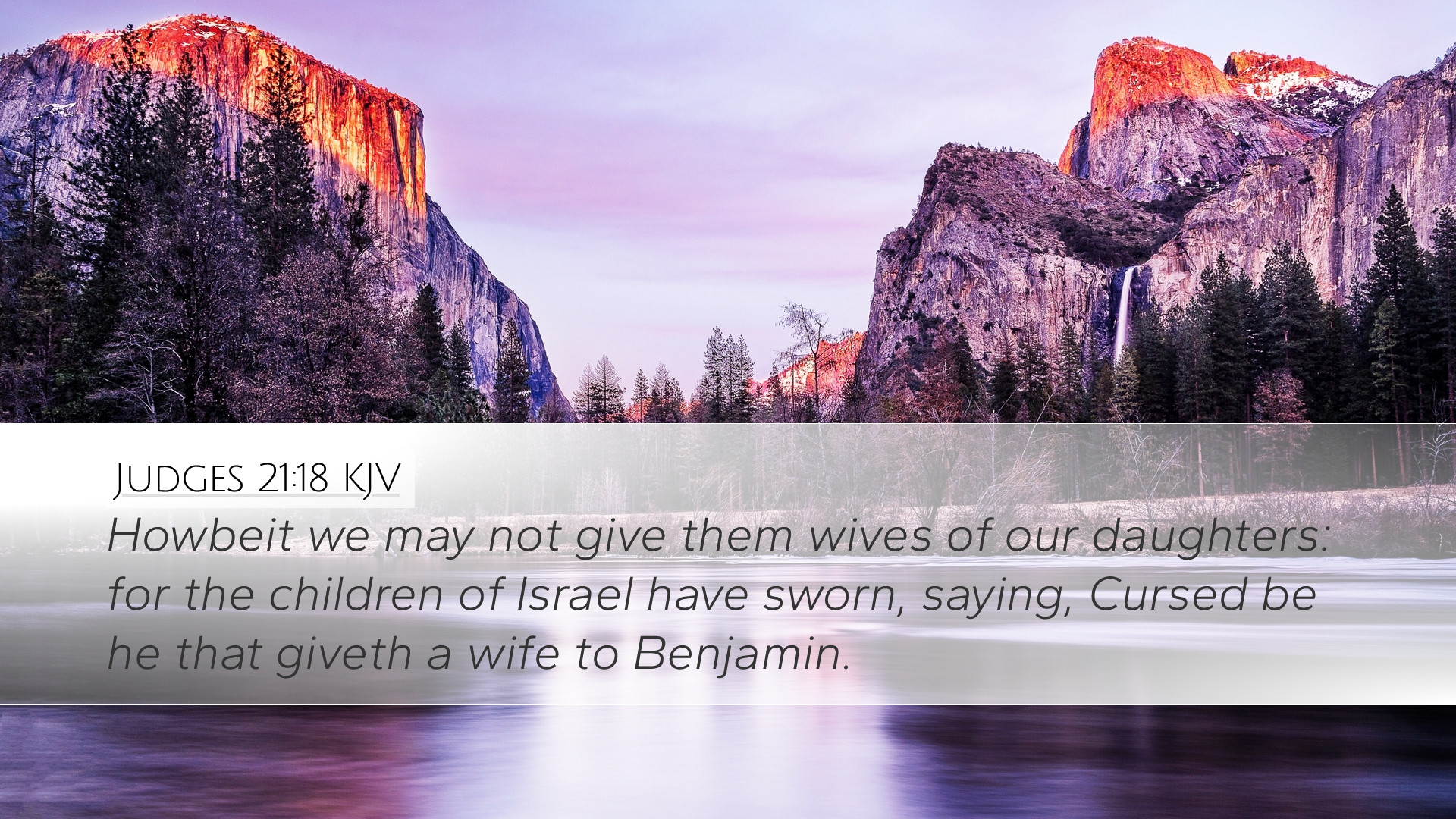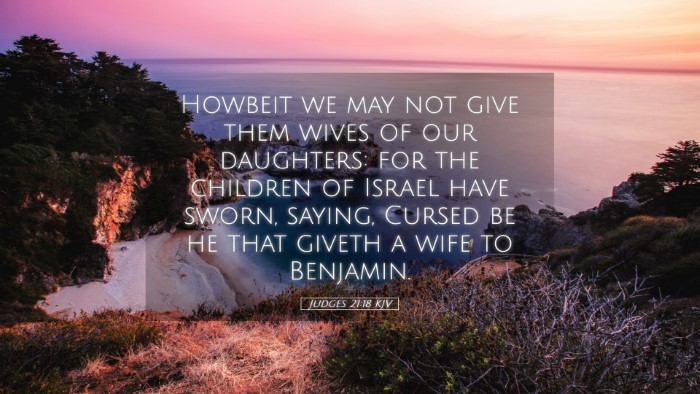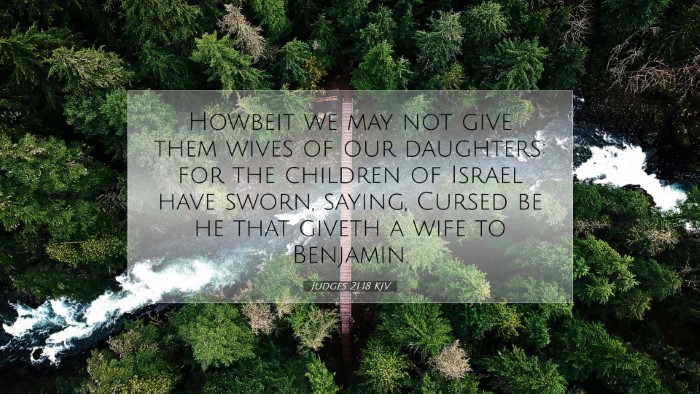Commentary on Judges 21:18
Verse Text: "And yet they said, We may not give them wives of our daughters: for the children of Israel have sworn, saying, Cursed be he that giveth a wife to Benjamin." (Judges 21:18)
Introduction to the Context
The Book of Judges presents a period in Israel's history marked by turmoil and moral ambiguity. Judges 21 depicts the dire situation faced by the tribe of Benjamin after a great civil war, which nearly annihilated them. Their desperate need for wives is central to the narrative, as a failure to secure future generations poses a significant threat to their existence.
Analysis of the Verse
In this verse, the Israelites express their commitment to an oath not to provide their daughters as wives for the Benjamites. This oath reflects both a commitment to justice for the violent acts committed by Benjamin and an illustration of the severe consequences of communal sin.
Insights from Matthew Henry
Matthew Henry emphasizes the seriousness of vows made before God. In his view, the Israelites' oath serves as a sober reminder of the weight of words spoken in covenant with God. Henry observes that the tribulations brought about by their swearing illustrated the perils of making hasty promises without counting the cost. The principle of adhering to one’s vows is central; consequences can arise when we let emotions cloud our judgment, as seen through this narrative.
Reflections from Albert Barnes
Albert Barnes delves into the implication of the prohibition against intermarriage, focusing on the covenantal aspect of Israel's identity. The insistence on not giving their daughters to Benjamin denotes a commitment to purity and integrity within the Israelite community. Barnes highlights how this dynamic reflects the larger theme of Israel's struggles with unity and faithfulness, indicating a broader spiritual war – not just against enemies outside, but problems within their own ranks.
Comments by Adam Clarke
Adam Clarke offers a socio-cultural perspective on this scenario, elucidating the historical significance behind the tensions. Clarke notes that intertribal conflict and personal animosities had reached a degree where even vital social practices such as marriage were affected. His observations suggest that such divisions within families and clans hindered the stability required for a strong national identity. He further outlines the intense emotions involved, shedding light on how personal conflicts often have far-reaching consequences in communal relationships.
The Theological Implications
Judges 21:18 brings significant theological implications regarding community, identity, and divine justice. The nature of their oath highlights the interplay between God's justice and human commitments. The Israelites are depicted as balancing their duty to uphold moral orders against their collective responsibility to support a fellow tribe in crisis. This balance of maintaining purity while showing compassion becomes a recurrent theme throughout the scriptural narrative.
The Role of Covenant Faithfulness
This verse prioritizes covenant faithfulness, representing a deep-rooted commitment to God's law over individual desires. As the Israelites grapple with their past actions against Benjamin, they recognize that faithfulness to God's word outweighs personal and collective emotions of pity or familial bonds.
Lessons on Integrity and Commitment
From a practical standpoint, pastors and theologians extracting doctrine from this verse might emphasize the importance of integrity. The echo of the Israelite commitment serves as a reminder that promises made must be upheld, not merely in personal affairs but also in church and community life. There is an inherent danger in making vows without due consideration of the impact these declarations may have on others, as pointed out by both Henry and Clarke.
Conclusion
Judges 21:18 provides a profound look into the challenges faced by Israel in its formative years, emphasizing the significance of vows and the complexity of relationships between communities. The insights from Henry, Barnes, and Clarke collectively weave a narrative that resonates deeply with issues of integrity, community identity, and the enduring consequences of sin.
This commentary invites reflection on how modern communities can learn from the historical context of Israel’s struggles in maintaining faithfulness to both God and one another. The burdens of past actions shape our present identity, and like the Israelites, maintaining balance between God’s justice and communal relationships remains a pivotal challenge.


